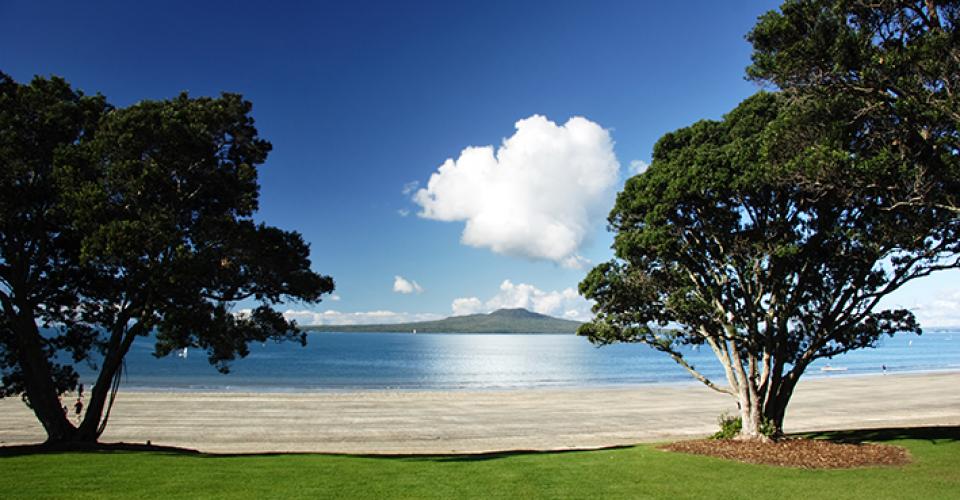Musings of a first-time sustainability teacher
18/09/2013What happens when a physics teacher wants to explore a complex topic like sustainability with her students? ANNE NICOLSON describes her experience.
 Primarily, I am a physics teacher. Admittedly, I’ve always been interested in environmental issues, but now I am going to teach the concept of ‘sustainability’.
Primarily, I am a physics teacher. Admittedly, I’ve always been interested in environmental issues, but now I am going to teach the concept of ‘sustainability’.
How do I do it? It’s a huge field, and at first glance, the standards are vague.
They don’t seem to match the exemplars on NZQA. Am I missing something? After more reading and talking, patterns start to emerge. I am not teaching content, I am teaching a way of thinking.
The content reads like a horror story. It involves violent weather, resource depletion, and climate refugees. The future looks bleak and the people who should be doing something aren’t doing anything.
My job is to deliver this news to students, who often don’t seem to think beyond their next birthday, and it needs to be in a way that will inspire action. It’s a perplexing situation, so I find myself looking to my own experience for inspiration.
I’ve always liked the certainty of mathematics. There are fixed reference points to navigate by.
If you can’t measure it, you can’t manage it, you don’t have to think about it.
I remember reading, in form six, that the basic ‘Newtonian equations of motion’ were used in self-guided Polaris missiles. At that age, this knowledge both shocked and comforted me. These machines were simple, predictable, and deadly. Fortunately, the possibility that these devices might be used was far from certain.
Yet in comparison, my students are living with the certainty of resource depletion, climate change, just one planet and maybe too many people.
How scared should I let my students get?
I always try to point to the positive. I tell my students that “for an ‘exact’ science, mathematics is rather inexact”. This is a quote from Goethe, who complained that mathematics only gives us half the picture. It just ignores what it can’t measure. The inverse square law can tell us how light spreads out with distance but not how love does. It simply does not compute.
‘Sustainability’ is full of things that don’t compute. How do we value the beauty of an environment, or the worth of an endangered species? What about the cost of fear or the value of lost traditional rights?
In addition, thinking about sustainability requires not only mathematics and science but also a good understanding of economics, politics, law, community, philosophy, and people.
The thinking skills I’m teaching would be difficult without Youtube videos, group whiteboards, writing frames, and word processing. We analyse all the NZQA exemplars scientifically. My students like this, as most of them don’t think of themselves as being scientists. We debate a lot, switch sides and debate again. The essays are improving. The thinking is getting broader, and it’s hopeful.
We are now most of the way through the course, and my initial bewilderment at the EFS standards have developed into respect for the people who managed to make sense of this subject.
The standards frame aspects in a manageable way and yet give freedom to explore different facets. EFS pulls me out of my comfort zone, but it feels like the most important conversation I am teaching.
Taking action is a way of addressing unspoken fear. Action reassures my students, it reassures me in these uncertain times of change. Naming and sorting out the things we can change seems like the first step in making the world more sustainable. My challenge to other schools is to be mature enough in their thinking to offer their students EFS as a subject. Surely its part of a future-proofed education.
This is a table outlining what we have done this year. It’s a table designed to be a ‘taster’, rather than a full explanation. Note I didn’t teach 90813.
|
|
Standard Title |
Credits |
Assess. |
Content |
|
90810 |
Plan, implement and evaluate a personal action that will contribute towards a sustainable future |
6 |
Internal |
Make a difference. Do a project.
|
|
90811 |
Describe the consequences of human activity within a biophysical environment in relation to a sustainable future |
4 |
Internal |
What is the point of farming worms? How do organic gardeners garden? How do they affect their land? |
|
90812 |
Describe world views, their expression through practices and activities and the consequences for a sustainable future |
4 |
Exam |
Which world views are good for sustainability? Is nature there to be exploited or is it ‘part of the family?’ |
|
90814 |
Describe aspects of sustainability in relation to a sustainable future |
4 |
Exam |
You can’t eat money. Poor but happy? This topic is about balancing all the different aspects of sustainability. |
|
90815 |
Work cooperatively to develop and present a strategy or design for sustainability in response to a future scenario |
3 |
Internal |
Work with a friend (s). Make over some house designs to cope better with Auckland’s rising temperature, rainfall and wild weather. (electricity and insurance costs are also rising)
|
|
|
|
|
|
|
- Anne Nicolson is a science teacher at Auckland Girl’s Grammar School.
You might also like to read:
- To the Ice
- Gene editing - a train coming down the track
- The gene editing future is here - Royal Society NZ panel formed
- The future of farming - teachers learn about agriculture careers
- The exponential generation - student workshops look to the future
- Network of inspiration: Assoc. for Women in Science

























Post your comment
Comments
No one has commented on this page yet.
RSS feed for comments on this page | RSS feed for all comments